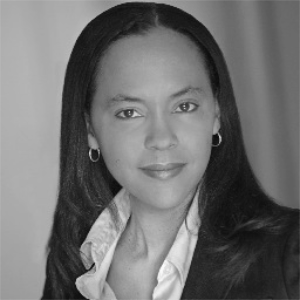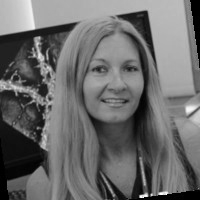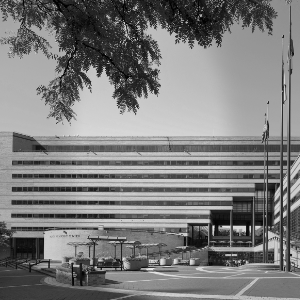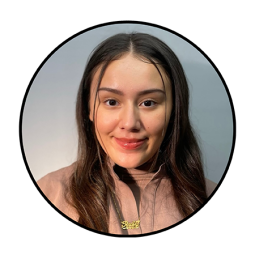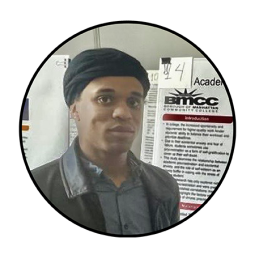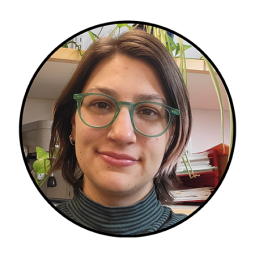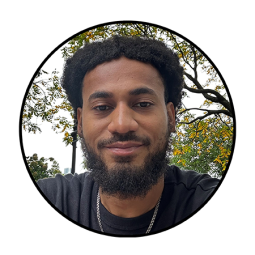Bridges to Baccalaureate
ABOUT US | APPLICATION | RESEARCHERS | SCHOLARS | FAQ
ABOUT US
Welcome! Our Manhattan-Bridge program seeks to enhance the number of underrepresented students in biomedical and behavioral sciences research by bridging the path from a minority-serving community college (Borough of Manhattan Community College [BMCC]) to a baccalaureate degree in a STEM field at a minority-serving senior college (The City College of New York [CCNY]). Manhattan-Bridge is a two-year scholarship that includes a coordinated system of faculty mentoring, peer mentoring, peer support, diversity training, STEM coursework, laboratory training, tutoring, career/academic enrichment workshops, and supplemental instruction -- all evidence-based components that contribute to equity. We provide trainees with research opportunities at BMCC and CCNY from committed experts in the biomedical and behavioral science fields to guide development of mentored research projects. Trainees will be provided with conference travel and research funds to facilitate their understanding of the conduct and dissemination of research findings throughout the academic year and summers. Our goal is to cultivate the educational, research and career self-efficacy of the trainees and to provide them with the social and academic grounding and research skills development to succeed in the biomedical and behavioral sciences.
APPLICATION | Apply Now!
Do not wait until the last minute to send your application. Now is the right time to apply.
RESEARCHERS
Robert Melara Ph.D
Grant Director
Multiple Principal Investigator
o: NAC 7/201 | p: 212-650-5716
e:
rmelara@ccny.cuny.edu
| CCNY Profile
Dr. Melara is the Grant Director and Multiple Principal Investigator for this Bridges grant. Dr. Melara is a psychophysicist and cognitive neuroscientist by training. He currently is a Professor and Chairperson of the Department of Psychology at City College, City University of New York. Dr. Melara received his Bachelor’s degree from SUNY Stony Brook and his Ph.D. from the New School for Social Research. He has 25 years of experience as an investigator of normal and impaired processes of attention in humans. He has published over 60 peer-reviewed articles designed to identify the cognitive and neural mechanisms of inhibition, perceptual discriminability, and working memory that govern attentive focus and distraction in the visual, tactile, and auditory modalities. Pursuit of these mechanisms has provided Dr. Melara with extensive experience using a range of laboratory attention tasks, statistical methods, and mathematical models. Over the past five years, Dr. Melara has served as Co-Investigator and Faculty mentor on a NIDA funded R25 training program (TRACC-RU; R25DA035161).
Lesia M. Ruglass Ph.D
Multiple Principal Investigator
o: NAC 8/132 | p: 212-650-7821
e:
lruglass@ccny.cuny.edu
| CCNY Profile
Dr. Ruglass is a Multiple Principal Investigator for this grant. Dr. Ruglass is an Associate Professor in the Masters in Mental Health Counseling Program, Director of the Research on Addictive Disorders (ROAD) Lab at CCNY, and PI of the NIH/NIDA-funded R25 program, TRACC-RU (R25DA035161). Over the past 19 years, she has served in key assessment, management and oversight roles on several NIH-funded research projects (1 NIH/NIAAA R01 and 2 NIH/NIDA funded R01s and 1 NIH/NIDA funded R25). She also served as the co-investigator of a pilot translational study examining social and non-social threat processing in PTSD, PI of a privately funded study geared towards understanding and reducing barriers to City College of New York’s (CCNY) REM students’ decisions to apply to and enter psychology graduate school, and PI on a university-funded pilot study examining racial/ethnic differences in cue reactivity among marijuana users and a NCI-funded pilot study examining racial/ethnic differences in cue reactivity among nicotine users. She has over 40 peer-reviewed publications and has presented her work nationally and internationally. Over the past six years, she has served as PI, education coordinator, and faculty mentor on a R25 training program (TRACC-RU, R25DA035161) housed at City College of New York. Dr. Ruglass will also serve as a mentor to one of the trainees in the program.
Dr. Joanna Giza
Multiple Principal Investigator
e: jgiza@bmcc.cuny.edu | BMCC Profile
Dr. Giza has over twenty years of experience in the field of molecular neurobiology. She completed her postdoctoral training at Yale University and Weill Cornell Medical College and authored numerous high impact neuroscience publications. She is also a recipient of the prestigious Brain and Behavior Research Foundation Young Investigator Grant. Her current research encompasses mechanisms regulating synaptic plasticity in the context of learning and memory and their dysregulation in neuropsychiatric disorders with the goal to discover novel targets for therapeutic interventions in mental health field. She currently uses cellular models examining growth factor prodomains of TGF beta and Brain Derived Neurotrophic Factor (BDNF) with Val66Met polymorphism present in ~25% of the human population, predisposing these individuals to developing anxiety, PTSD, depression, and Alzheimer’s Disease. As a professor at BMCC Science department, she is the coordinator of the Biotechnology program and biology courses, Neuroscience Club advisor, a research mentor for CRSP students and a leader of multiple research collaborations.
Hawai Kwok M.A.
Program Director
o: NAC 7/120 | p: 212-650-6777
e:
kwok@ccny.cuny.edu
| CCNY Profile
Hawai Kwok is the Program Director for this grant. She has over 13 years of experience in supporting STEM students in experiential learning and placing hundreds of students in internships in NYC, Washington D.C. and internationally. She supported REM students in STEM laboratories, some of who entered into PhD programs and continued research work post-graduation. She serves as Director of Academic Programs in the Psychology Department at CCNY.
FAQ
All students regardless of race, ethnicity, age, gender and disabilities status are encouraged to apply and will be equally considered as a prospect for this opportunity.
Cohort 3
Damaris Sierra
Damaris Sierra is a recent graduate from BMCC, currently pursuing a major in Psychology at City College of New York, and enrolled in the B.A./M.A. CASAC program. She holds a CASAC-T certification and has prior experience in the substance abuse field, where she provided services to underserved communities and directed a Youth Prevention program, working with individuals as young as 6 years old in the South Bronx. Her career goal is to become a licensed mental health counselor with a specialization in substance abuse treatment, where she can apply her skills and experiences to help others overcome their challenges.
Ruby Mendez
Ruby Mendez is an incoming Biology major at the City College of New York. When she’s not in class, she works as a lead medical assistant at a dermatology practice based in New York City. Ruby is currently pursuing a degree in Health Science at the Borough of Manhattan Community College (BMCC). Working alongside a physician who leads clinical trials on dermatological conditions sparked her interest in research. Motivated by the nature of these cases, Ruby is now venturing into the research field. Ruby is an aspiring physician with plans to specialize as an OBGYN. As such, she will be collaborating with Dr. Sarah O’Neill on a project studying the impact of stress in pregnancy and how prenatal exposure to natural disasters in utero can play a role in cognitive, emotional, and behavioral development on the offspring.
Quame Verneuil
Quame Verneuil is a rising City College Psychology major who discovered a profound passion for STEM. His journey began when he had the incredible opportunity to present his research at BMCC's BARS symposium. Witnessing the real-world impact of science and technology ignited a fervour within him and sparked him to pursue a future in research. Witnessing the struggles of his loved ones as a result of a lack of understanding of psychology and health spurred Quame’s resolve to make a difference. Quame wishes to mentor and empower others so that they can avoid the same difficulties, and together, create a positive impact on people's lives through STEM. Quame hopes to research how existential concerns can influence procrastination and academic achievement in higher education.
Tosha Diamond-Huey
Tosha is a biology student at City College who returned to school after an eight-year career in dialysis to pursue her passion for environmental science. She is deeply committed to addressing the challenges of a rapidly changing climate and has a special affinity for plants, finding joy in studying their complexities and their role in maintaining ecological balance. Tosha is particularly interested in exploring sustainable solutions to mitigate environmental damage and promote biodiversity. Her growing interest in research is fueled by a desire to make a tangible impact on the world through science. She also enjoys sustainable crafting and nurturing her collection of houseplants, blending creativity with her love for nature. Tosha aspires to contribute to meaningful advancements in environmental sustainability and inspire others to care for the planet.
Cohort 4
Aelxandra Mindnich
Alexandra Mindnich is an undergraduate psychology major at BMCC, where her curiosity about psychology began to blossom during high school. Her passion for the field deepened through a summer scholarship program at CCNY, where she gained hands-on experience with EEG technology and read and annotated psychological research articles. Continuing her studies at BMCC and CCNY, Alexandra has become particularly intrigued by educational psychology. She is eager to transfer to CCNY to join the BA/MA program to deepen her research skills and knowledge. With aspirations to earn a PhD, Alexandra hopes to dedicate her career to studying and improving public education.
Chris Acosta
Chris Acosta, a third semester psychology major at BMCC, is passionate about cognitive neuroscience and social psychology research. Through his experiences growing up in the South Bronx as well as his coursework at BMCC, Chris has developed an intrigue for the psychological sciences. He is most captivated by learning how biological processes lead to consciousness, and how consciousness influences our social behaviors. Under the guidance of Dr. Daniel DePaulo, Chris is actively engaged in research that examines the relationship between social connectedness and positive life outcomes. Aspiring to earn a PhD in neuroscience, Chris aims to contribute meaningfully to his community by influencing policy-making in education on the local and federal levels.
Gévelle-Marie Lezama
With a background in television production, Gévelle-Marie can be described as tunnel-visioned and multi-faceted. Born and raised where the sweet sound of steel pan resides, Trinidad and Tobago, West Indies, Gévelle-Marie spent the vast majority of her life building the creative industry of Trinidad and Tobago with her mentor Christian Michel Carbaza, a European A&R executive. After his death, her instincts jolted her to make an environmental adjustment by moving to New York City. There she enrolled in BMCC in Fall 2023 to pursue her AA in psychology, majoring in STEM. The famous quote by Mahatma Gandhi, “Be the change you wish to see in world” was the upward spear she needed to shift her perspective. As she embarks on this new journey, Gévelle-Marie states, “The lifestyle changes for me by being a participant in the Bridges to Baccalaureate Research Training Program (T34) will affect all timelines. I stand on the intersection by being West Indian and woman of color. I see global barricades that impact us all as a community.” She aims to acquire a PhD in research and to be on a team that executes global explorations. Gévelle-Marie can often be seen captivated by flora and fauna that exist amongst us.
Suhjin Bae
Suhjin Bae immigrated in 2014 and started her career after graduating from culinary school. Though working in a restaurant, she was eager to study further for her bachelor’s degree and decided to study at BMCC. While studying at BMCC, she realized her passion for science and research work in the fields of chemistry and biology. Now she leads a very busy life, studying as a student during weekdays and working in a restaurant on weekends, and sometimes she feels overwhelmed. However, she remembers the quote, “Pressure is a privilege.” Her dream is to study in graduate school in the future.
What is the minimum GPA required to apply?
3.2 however each candidate’s full application is reviewed and considered.
Do I have to be a science major?
No, anyone interested and curious about the sciences are encouraged apply.
Do I need a letter of recommendation?
We just need a professor’s name and email. It always helps to have one though.
Do I have to transfer to CCNY?
Yes, it is a requirement to be considered for the program.
I just graduated with an Associate’s Degree and will be starting at CCNY in the fall, do I qualify to apply?
Unfortunately, the grant requires candidates to spend their last year at BMCC (2 semesters left at BMCC)
My application is late. Will I still be considered?
Yes, please notify Hawai Kwok, kwok@ccny.cuny.edu .
How do I know if my background qualifies as under-represented?
1. Individuals from racial and ethnic backgrounds such as: Black or African Americans, Hispanics or Latinos, American Indians or Alaska Natives, Native Hawaiians and other Pacific Islanders.
2. Individuals with disabilities, who are defined as those with a physical or mental impairment that substantially limits one or more major life activities, as described in the Americans with Disabilities Act of 1990, as amended.
3. Individuals from disadvantaged backgrounds, defined as those who meet two or more of the following criteria:
- Were or currently are homeless, as defined by the McKinney-Vento Homeless Assistance Act.
- Were or currently are in the foster care system, as defined by the Administration for Children and Families.
- Were eligible for the Federal Free and Reduced Lunch Program for two or more years.
- Have/had no parents or legal guardians who completed a bachelor’s degree.
- Were or currently are eligible for Federal Pell grants.
- Received support from the Special Supplemental Nutrition Program for Women, Infants and Children (WIC) as a parent or child.
Do I have to be a citizen to qualify?
Trainees must be a citizen or a noncitizen national* of the United States or have been lawfully admitted for permanent residence at the time of appointment. An individual lawfully admitted for permanent residence must possess an alien registration receipt card (I-551) prior to appointment on the grant.
**Individuals on temporary visas, those seeking asylum or refugees, or those supported through the Deferred Action for Childhood Arrivals (DACA) program are not eligible for support through NIH NRSA programs**
Still have more questions?
Please reach out to Hawai Kwok, kwok@ccny.cuny.edu
Last Updated: 07/29/2025 12:35


